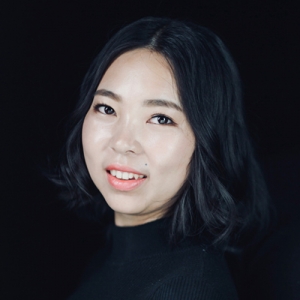Search presentation
Information
Click on any of the presentation to access its dedicated blog page, to type your question and get the answer of the presenter being in another venue (all the Q&A remain in each presentation blog page). search a presentation by key word or topics. Find in any of the dedicated blog pages, its presentation video, slides and paper.

milan maria isabel
The Esperança Community Garden and the challenges of integral sustainability
This paper presents the implementation of a community garden in a low-income community at Belo Horizonte, Minas Gerais, Brazil, as a research and extension project, practicing sustainability values. The garden was built in an area that has been made vacant by local authorities due to its geological risk. Three universities are working together in this initiative, mobilizing an interdisciplinary group of teachers and students. The guidelines of the interventions are the concepts of Systemic Design, Agroecology and Solidarity Economy, resulting in surveys, collective actions and discussions about the garden’s principles and its management. Throughout this work, a spontaneous management group has emerged, establishing unprecedented interactions in the community, increasing their social cohesion. For that, the methodologies and references adopted include observant participation and field diaries, as well as participatory action-research. Some challenges have emerged during the process and the reflections are bringing new propositions concerning the increase of the local integral sustainability.
Authors: Samantha de Oliveira Nery, Ediméia Maria Ribeiro de Mello, Rosângela Miriam Lemos Oliveira Mendonça
Product-Service Systems Development Process: Systematic Literature Review
This paper presents a systematic literature review on Product-Service Systems (PSS), focusing on its development processes. Product Service Systems (PSS) are a sustainable industrial solution, delivering an integration of products and services instead of products only – a model still not broadly recognized. A literature search encountered 87 non-duplicated papers, employed at identifying existing approaches on PSS development, according to its lifecycle stages. The main approaches per stage were presented, as well as those with a focus on sustainability. Since manufacturing companies need support on delivering PSSs solutions to customers, this research takes a step forward into a practical assistance approach.
Authors: Barbara Tokarz, Bruno Tokarz, Délcio Pereira, Alexandre Borges Fagundes, Fernanda Hänsch Beuren
Education for sustainable development. Case of an Industrial Engineering program in Colombia.
The environmental problems are a reality in the Colombian context and its effects are associated with high costs invested to solve health problems and the damage of ecosystems. Higher education promotes a change of values, behaviors, skills, knowledge that could help humanity to be closer to sustainable development. This is the case of the Eco-design class, part of the environmental management emphasis of the Industrial Engineering program of El Bosque University in Colombia. In this class, pedagogical projects are developed in which students apply and present the gained knowledge during semester in an institutional event every semester. In this paper, is analysed the scope of the projects in accordance with levels of ecodesign application and levels of the evolution of design for sustainability, finding that the class has advanced in the last years generating innovative projects focus on the development of sustainable product-service systems. Moreover, is reviewed how from the class are promoted key sustainable development competences.
Authors: Carolina Montoya-Rodríguez
Design as Democracy: the democratic potential of design
The present article proposes to investigate possible futures for the design through a proximal and dialogical approach between design and democracy. In this way, we begin with the letter "Stand Up for Democracy", written by MANZINI and MARGOLIN. Thus we seek to understand the foundations of the concept of Design as Democracy, proposed by the mentioned authors. We seek a relationship between the structures of democratic models and design practices. For these reasons, we have opened up a dialogue on codesign as a possible methodological alternative for a democratic design, more comprehensive, horizontal and open for all. Providing a fertile ground where collective creativity can be used as a form of collaboration and solving common problems is mirrored in design as democracy.For this resonates with the creation of a more inclusive and sustainable world for the future generation.
Authors: IZIDIO, Luiz Lagares, MORAES, Dijon De,
Cerne Project and Remexe Collection: actions in social design in search of social innovations of systemic character
This article presents the experience of a coordinated action between three institutions - FUMEC University, Lá da Favelinha Cultural Center and SEBRAE / MG - developed from a systemic perspective, with the intention of integrating the community of the villages of Aglomerado da Serra with the neighborhoods in its surroundings, where the FUMEC is located, stimulating a collaborative network of flows of clothing, accessories and shoes used for a process of creative reinvention through the logic of upcycling. This work was based on the concepts of Social Design and awareness of the need for sustainable integration with the natural environment, rethinking the limits of its ability to provide raw materials and absorb the impacts of our society's waste.
Authors: Juliana Pontes Ribeiro, Adriana Tonani Mazzieiro, Gabriel Julian Wendling
beijing poster Song Jiajia
Song Jiajia was born in Jilin city in 1990, graduated with a master's degree in textile and surface design major from the Weißensee Academy of Art Berlin. In 2015, she won the first batch of special scholarship for arts talents sponsored by the Member of National Fund for Studying Abroad. After returning back to China in 2017, she worked as an assistant professor in the Innovative Materials Research Centre of Beijing Institute of Fashion Technology, and devoted herself to the study on innovative materials and sustainable design of materials. In 2018, she won the third prize of teaching and educating in Beijing institute of fashion technology. In March 2019, she organized, planned and designed the exhibition area of "BIFT X IMR Centre" in Shanghai. At present, she has successfully applied for the doctoral degree of the Academy of Arts & Design, Tsinghua University and will formally engage in the doctoral research in September this year.
Posters:
Design for sustainability and ICT: a household prototype for waste water recycling
ICT can play a role in environment preservation, to face degradation of the ecosystem, and innovation, to satisfy emerging needs. This research focuses on experimental application of interaction design methodologies and digital technologies to foster the transition towards sustainability in the framework of a wider interdisciplinary research about the development of a system for recycling water at home to grow edible plants. An iterative design process, articulated in prototyping-evaluating-improving cycles, has been implemented, with the involvement of different stakeholders, to develop the interaction system applied to manage waste water and information flows needed to control water decontamination, plant irrigation and lighting. The paper reports the main features of the system and the main outcomes of the user studies.
Authors: Fiammetta Costa, Marco Aureggi, Luciana Migliore, Paolo Perego, Margherita Pillan, Carlo Emilio Standoli, Giorgio Vignati
ERSILIAlab in Milan. A participatory experience to design new ways for Roma’s social inclusion
Urban poverty and its spatial manifestations are linked to social production of cities (ASF 2012). In this direction, ASF’s understanding of exclusionary practices and processes in the built environment is based on the idea that spatial structures are the means and outcome of social relations.
ERSILIAlab is a social/urban development programme in which ASF Italia aims at overcoming Roma’s difficult living conditions in informal camps and at promoting relationships between Roma and their nearest neighbours —called gadjé, namely not-Roma.
Italian political agenda has been studying possibilities of Roma’s inclusion for long, but no shared answers have been already achieved.
Since 2017, ASF Italia has been working in a Roma camp located in South-East Milan urban fringes. After a yearlong process, Roma and some neighbours have built together ERSILIAlab’s Carriage, a mobile public space to spread overlooked Roma’s culture and to share mutual knowledge, providing a participatory opportunity for cross-cultural relations.
Authors: Silvia Nessi, Beatrice Galimberti
milan oral Chiara Battistoni
Chiara Battistoni is an Italian Eco and Systemic Designer born in 1988 in Torino (Italy). Currently, she is pursuing a PhD in Management, Production and Design in Politecnico di Torino (Italy) since November 2016, working with the Systemic Design Research Group in the Department of Architecture and Design lead by Silvia Barbero (before Luigi Bistagnino).
Thanks to the bachelor degree in Industrial Design and the master in Ecodesign (now “Systemic Design, Aurelio Peccei”), she is actively interested in sustainable environmental design and her main line of research centres on the territorial potentialities reached thanks to the Systemic Design Approach. She had the possibilities to start to explore this research field in the master thesis and in some collaborative projects like research fellow with international partners like Zeri foundation.
Currently her PhD centers on the relationship between Systemic design, sustainability and entrepreneurship, finding the best way to implement systemic and circular projects to reach zero waste and a sustainable local development. Since April 2016, she is also collaborating in the European project Interreg Europe RETRACE and since 2015 she is the teacher assistant of the course ‘Systemic Design’ in Politecnico di Torino (Italy).
Publishing activity: https://iris.polito.it/cris/rp/rp20365?sort_byall=2&orderall=DESC&open=all#.XJIiQM_7T_Q
Oral Presentations:
beijing poster Jixing Shi
Shi Jixing, Ph.D.candidate. Research direction: Design methodology and design research methodology.
Posters:



